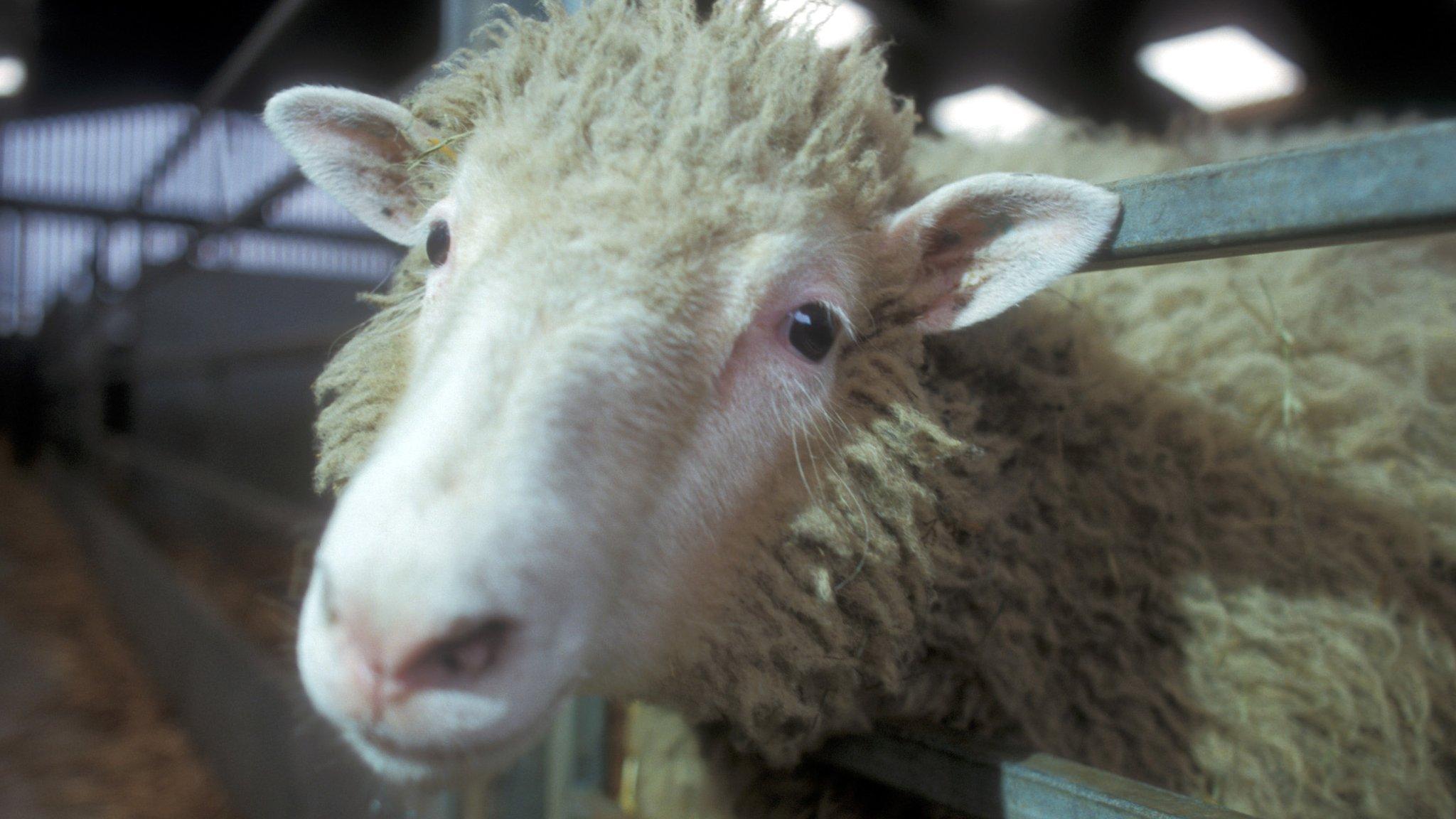Dolly the Sheep's fleece donated to museum
- Published
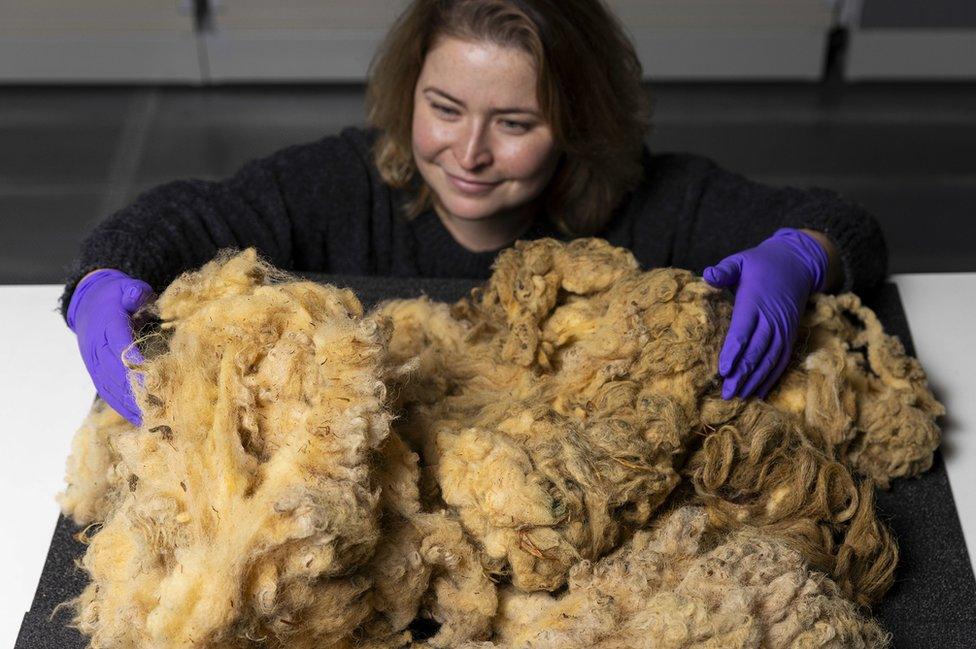
The fleece will join other items in the collection celebrating Dolly the Sheep
A fleece from Dolly the sheep, the world's first cloned mammal, has been donated to National Museums Scotland.
Dolly the sheep was born in 1996 at the Roslin Institute just outside Edinburgh, where she lived until her death in 2003.
Equipment, including sharpened glass pipettes and an electrical fusion machine have also been gifted.
The items had been valued and were thought to be worth between £20,000-£30,000.
The donation was made by Dr William A Ritchie, an embryologist on the team that created Dolly.
He said: "When Dolly the sheep was introduced to the world the scientific community went wild.
"The impossible had been achieved, and to make the story even more remarkable, some of the equipment used to produce this breakthrough was handmade in the Roslin Institute's workshop just outside Edinburgh.
"It is only fitting that the equipment and the fleece are reunited with Dolly in Scotland's national collections to add to the story of this extraordinary scientific achievement."
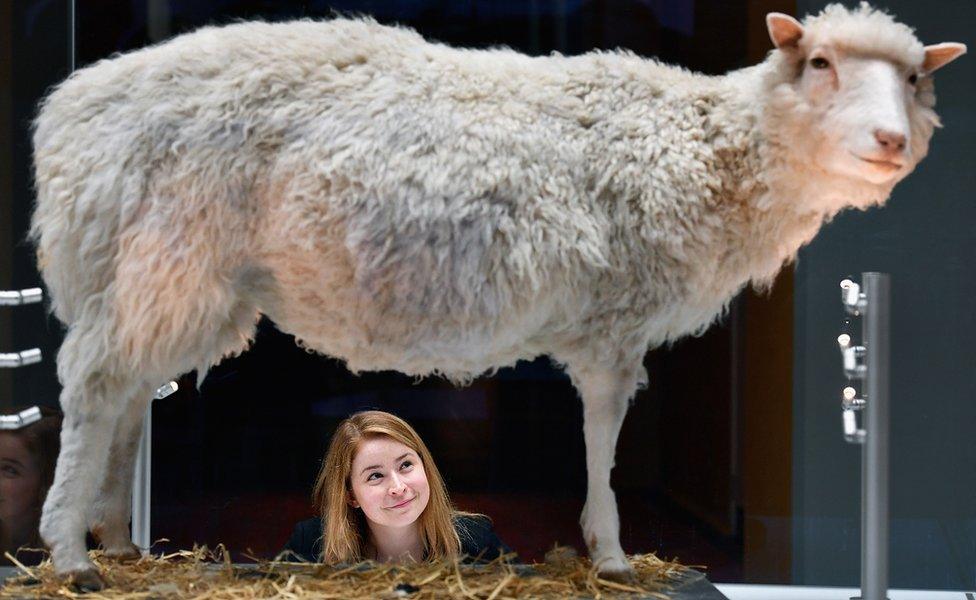
Dolly the sheep's preserved body is on display in Edinburgh
The fleece and tools join a range of material on display at the National Museum of Scotland in Edinburgh associated with Dolly, including her preserved body, death mask and two other preserved sheep, Morag and Megan, who were part of the cloning research.
Preserved on a custom-built fibre glass frame, Dolly has been on display at the museum for nearly 20 years and remains one of its most popular exhibits.
Sophie Goggins, senior curator of biomedical science at National Museums Scotland, said: "We are delighted to add Dolly's fleece and these remarkable instruments to the national collections, thanks to the generosity of Dr William A Ritchie.
"Dolly the sheep represents one of the most important scientific advances of the 20th Century. Her fleece will now be available to researchers, ensuring Dolly's remarkable contribution to science continues for generations to come."
Dolly was created using a cell from the mammary gland of a dead adult sheep to create a living animal that was genetically identical to the donor.
A blue plaque, which links important historical figures with the buildings in which they lived and worked, was installed at the Roslin Institute in Dolly's honour in 2015.
Dolly's fleece and the lab equipment recently featured in an episode of the Antiques Roadshow and were valued at between £20,000 and £30,000.
Presenter Cristian Beadman said of the collection: "It's almost impossible to value, I think it's well into five figures at auction. I think you could be looking at £20,000 to £30,000."
The items are expected to feature again on an Antiques Roadshow Christmas special being broadcast on Sunday.
Related topics
- Published11 September 2023

- Published5 July 2016
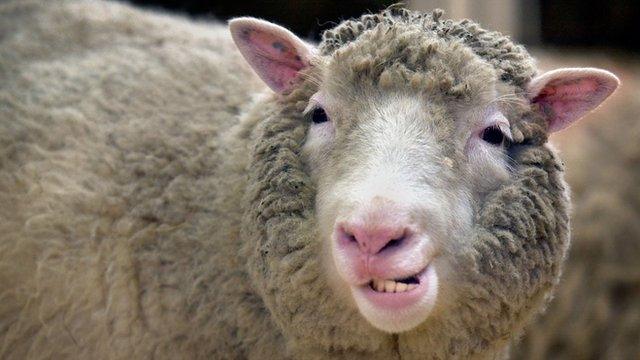
- Published4 July 2016
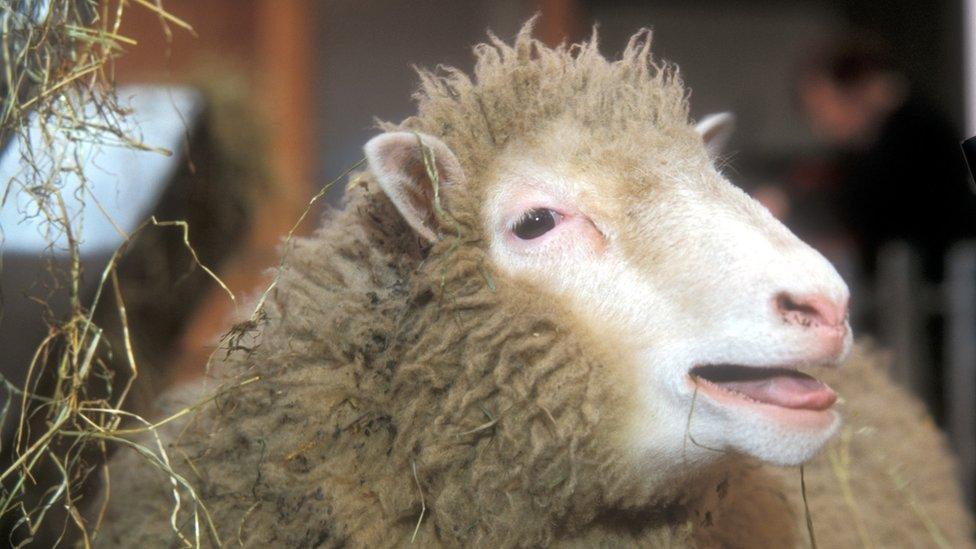
- Published21 February 2015
